Most people know that kittens need to be switched to cat food at a certain point, but they may not know exactly when that is. Kittens should be switched to cat food between 9 and 12 months old, as this is when their digestive system is ready for it.
If you notice that your kitten is losing their baby teeth and growing in their permanent ones, it may be time to make the switch. Another indication that it’s time for cat food is if your kitten begins to show less interest in its kitten food.
How long should a kitten eat kitten food?
Kittens should eat kitten food for about a year before switching to cat food. Kitten food is specifically designed to meet the nutritional needs of growing kittens. It has the right balance of protein, fat, and carbohydrates to help kittens grow and develop properly.
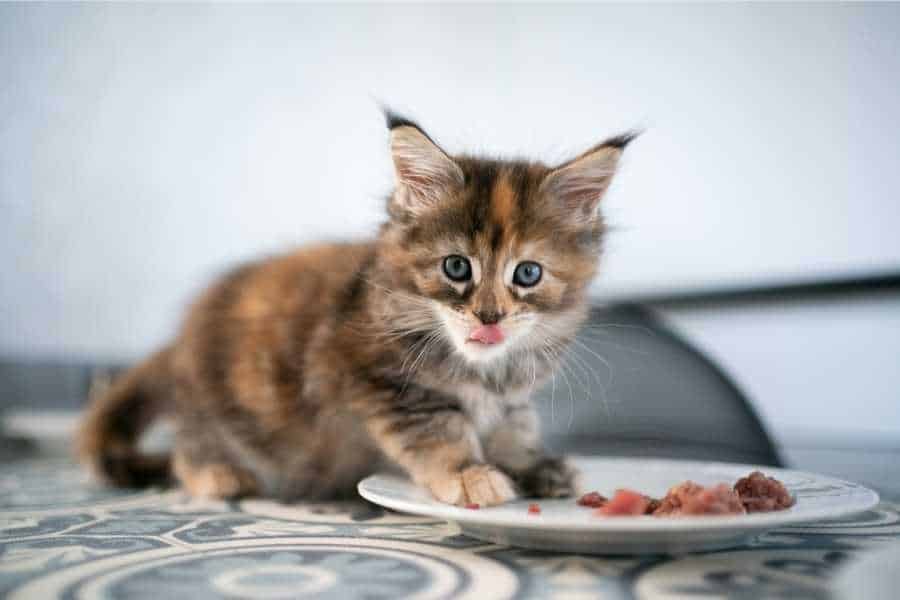
What happens if a kitten eats cat food and is it OK?
If a kitten eats cat food, it will not get the right nutrients it needs to grow properly. Cat food is designed for adult cats and is not as nutrient-rich as kitten food. Kittens that eat cat food may end up being malnourished and could develop health problems.
When Can Kittens Eat Dry & Wet Food?
Kittens can eat both wet and dry food at around 4-6 months old. However, it is important to transition them from kitten food to adult food slowly.
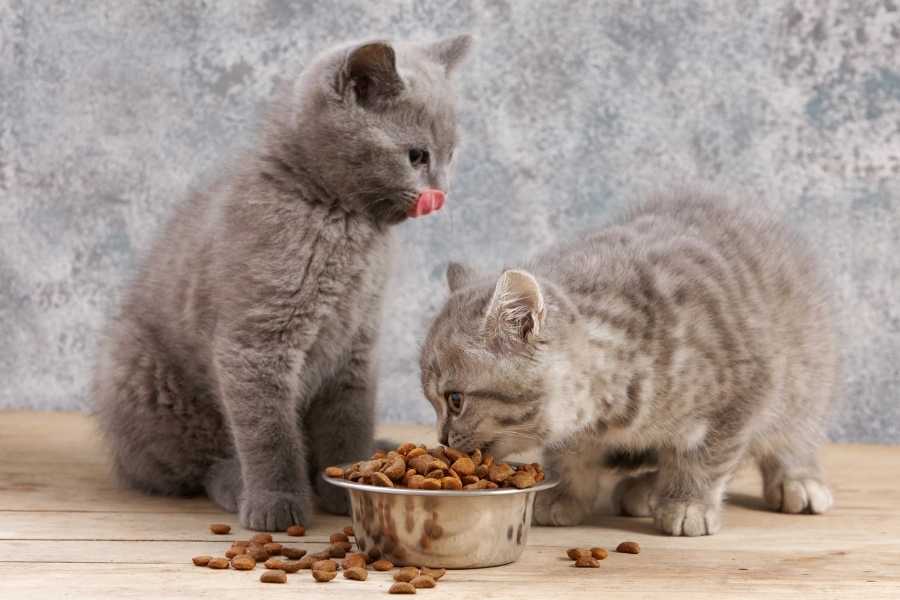
What is the difference between kitten food and cat food?
At first glance, kitten food and cat food may appear to be essentially the same thing. After all, both foods are designed for the consumption of cats, and they tend to contain similar ingredients like grains and proteins.
However, there are several key differences between kitten food and cat food that are important to take into consideration when deciding which type of food is best for your feline friend.
For one thing, kitten food often contains higher levels of protein and fat than cat food, as well as more calories in general.
This is crucial for young cats who require extra energy to support their rapid growth rate. In addition, some types of cat food may contain more additives or preservatives than kitten food, making it less suitable for younger cats with sensitive digestive systems.
So if you’re looking for the best possible nutrition for your growing kitty, be sure to choose a high-quality kitten food instead of regular cat chow.
What are the benefits of switching a kitten to cat food?
When it comes to switching a kitten over to cat food, several essential benefits should not be overlooked.
For starters, this transition helps to ensure that kittens are getting all the nutrients they need to grow and thrive. It also allows them to develop healthy eating habits at an early age, preparing them for life as adult cats.
Additionally, transitioning your kitten over to cat food early on can help encourage positive associations with meal times, which can make feeding them in the future easier and less stressful for both you and your feline friend.
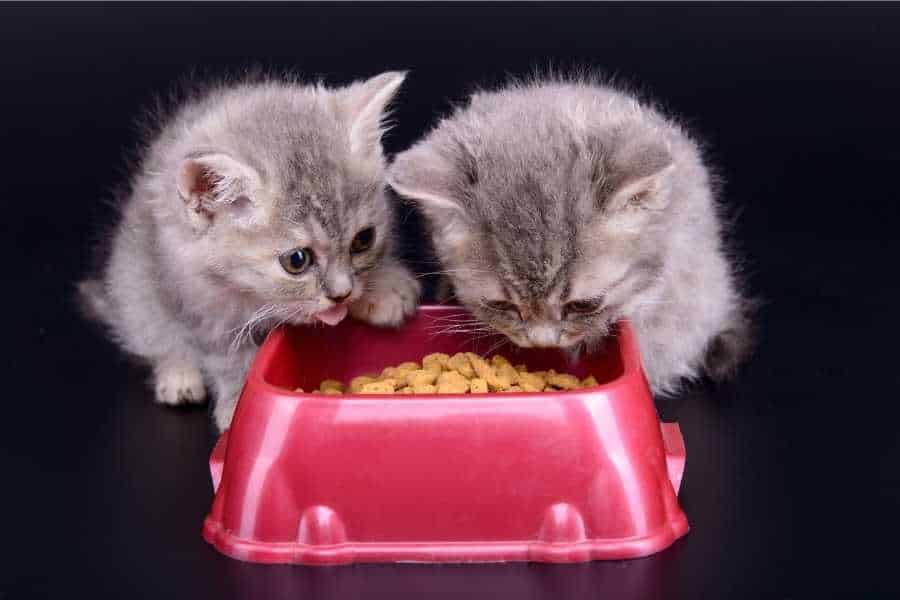
Overall, switching kitten food to cat food early is a great way to set them up for long-term success and happiness!
How do I transition my kitten to adult food?
Making the switch from kitten food to adult cat food can seem daunting, but it’s a pretty simple process if you take it step-by-step.
Here are a few tips on how to make the transition go as smoothly as possible for both you and your kitty.
- Start by gradually mixing in small amounts of adult food with your kitten’s regular diet. This will help them get used to the new taste and textures.
- As they become more comfortable with adult food, increase the proportion of adult food until they are only eating that type of food.
- If your kitten has any digestive problems after making the switch, try feeding them smaller meals more often throughout the day instead of one large meal.
- Keep an eye on their weight and adjust their diet accordingly; if they start packing on too many pounds, go back to feeding them mainly kitten food until they slim down again.
Most importantly, be patient!
It may take a little while for your kitten to get used to eating adult cat food, but eventually, they’ll adapt and be just fine.
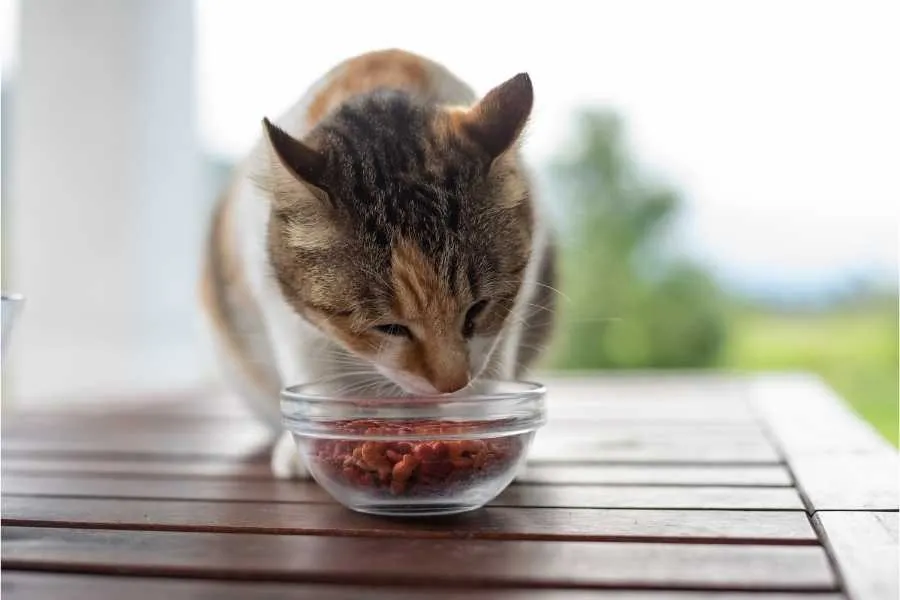
When Switching From Kitten to Cat Food Causes Problems
Making the transition from kitten food to adult cat food can be a challenge, and sometimes it can cause problems for your kitty.
If your kitten has trouble digesting the new food, try feeding them smaller meals more often throughout the day instead of one large meal.
You may also want to consult with your veterinarian about which type of adult food would be best for your kitty.
How to Choose an Adult Cat Food
When it comes to choosing adult cat food, there are a few things you need to keep in mind. The first thing to consider is your cat’s age. Adult cat foods are specifically designed for cats who are over one year old, and they often contain different ingredients than kitten food.
Another important factor to consider is your cat’s lifestyle. If they lead a sedentary lifestyle, you’ll want to choose a food that is low in fat and calories.
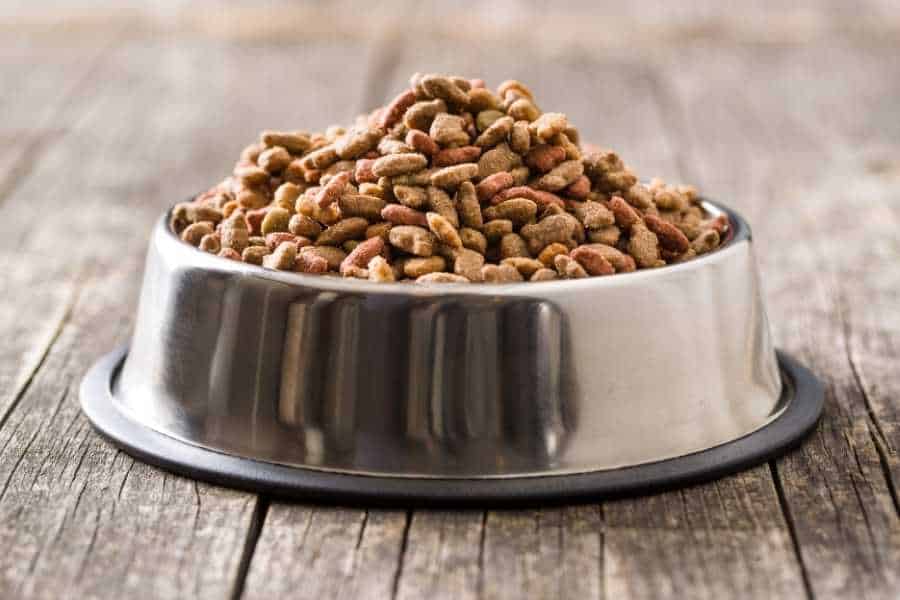
Conversely, if your cat is active and likes to play outdoors, you’ll want to choose a food that is high in protein and nutrients.
Finally, it’s also important to read the ingredient list on the back of the food bag. Look for foods that contain high-quality proteins like chicken or beef, as well as healthy fats like salmon or flaxseed oil.
Summary
So, when is the right time to make the switch from kitten food to cat food? The answer depends on your cat’s age. Kittens should start eating adult food around 12 months old, while cats can eat either dry or wet food depending on their preference and lifestyle.
We hope this article has helped you understand the importance of transitioning your kitten to adult food and given you some tips on how to choose an appropriate diet for your furry friend.

